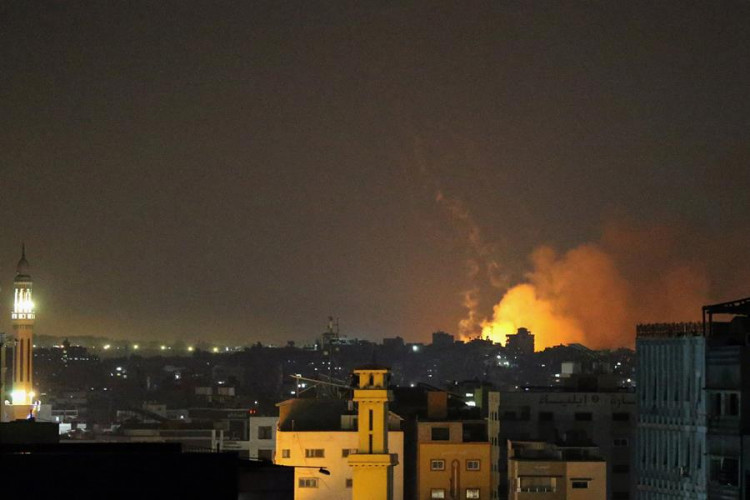The conflict between Israel and Hamas has escalated dramatically, with Israel expanding its military operations in the Gaza Strip. The recent developments come in the wake of a brutal incursion by Hamas on October 7, which ignited the current wave of violence.
According to reports from CNN and AP News, the Israeli army has intensified its ground operations and airstrikes in Gaza. Videos released by the Israeli military depict their ground forces in the region and airstrikes targeting Hamas positions. In Khan Younis, the aftermath of the Israeli airstrikes is palpable, with residents sifting through the rubble of destroyed homes.
The humanitarian situation in Gaza is dire. The Gaza Health Ministry reported that the death toll among Palestinians has surpassed 8,000, with the majority being women and minors. This marks an unprecedented number in the history of Israeli-Palestinian confrontations. On the Israeli side, over 1,400 people, primarily civilians, have lost their lives since the onset of the conflict.
Amid the devastation, the UN warned Sunday that there are signs "civil order is starting to break down" in Gaza. The situation has become so dire that thousands of people broke into warehouses to obtain essential items like flour and basic hygiene products. Thomas White, director of UNRWA, expressed his concerns, stating, "The desperation we're witnessing is unprecedented. The people of Gaza are reaching a breaking point, and the international community must intervene urgently."
Communications in Gaza, which were disrupted following an intense Israeli bombardment, were partially restored. However, the 2.3 million residents of the enclave remain largely isolated from the outside world.
The International Criminal Court's chief prosecutor, Karim Khan, after visiting the Rafah crossing, emphasized the profound suffering of civilians. He stated, "The level of violence is something I have not seen before in this conflict." While he urged Israel to adhere to international law, he also labeled Hamas' October 7 attack as a significant violation of international humanitarian norms.
Hospitals in Gaza, already under strain, face increasing threats. Airstrikes in the vicinity of Shifa Hospital, Gaza's largest medical facility, have hindered access. Israel has alleged that Hamas maintains a covert command post beneath the hospital, an accusation that Hamas refutes.
The conflict has also impacted Gaza's infrastructure. The region's sole power plant ceased operations shortly after the war's commencement. Hospitals are grappling to keep emergency generators functional, essential for life-saving equipment. The U.N. agency for Palestinian refugees, UNRWA, is striving to maintain water pumps and bakeries operational.
As the conflict rages on, international observers and leaders are calling for restraint and a peaceful resolution. The escalating violence underscores the complexities of the Israeli-Palestinian conflict and the urgent need for diplomatic intervention.






